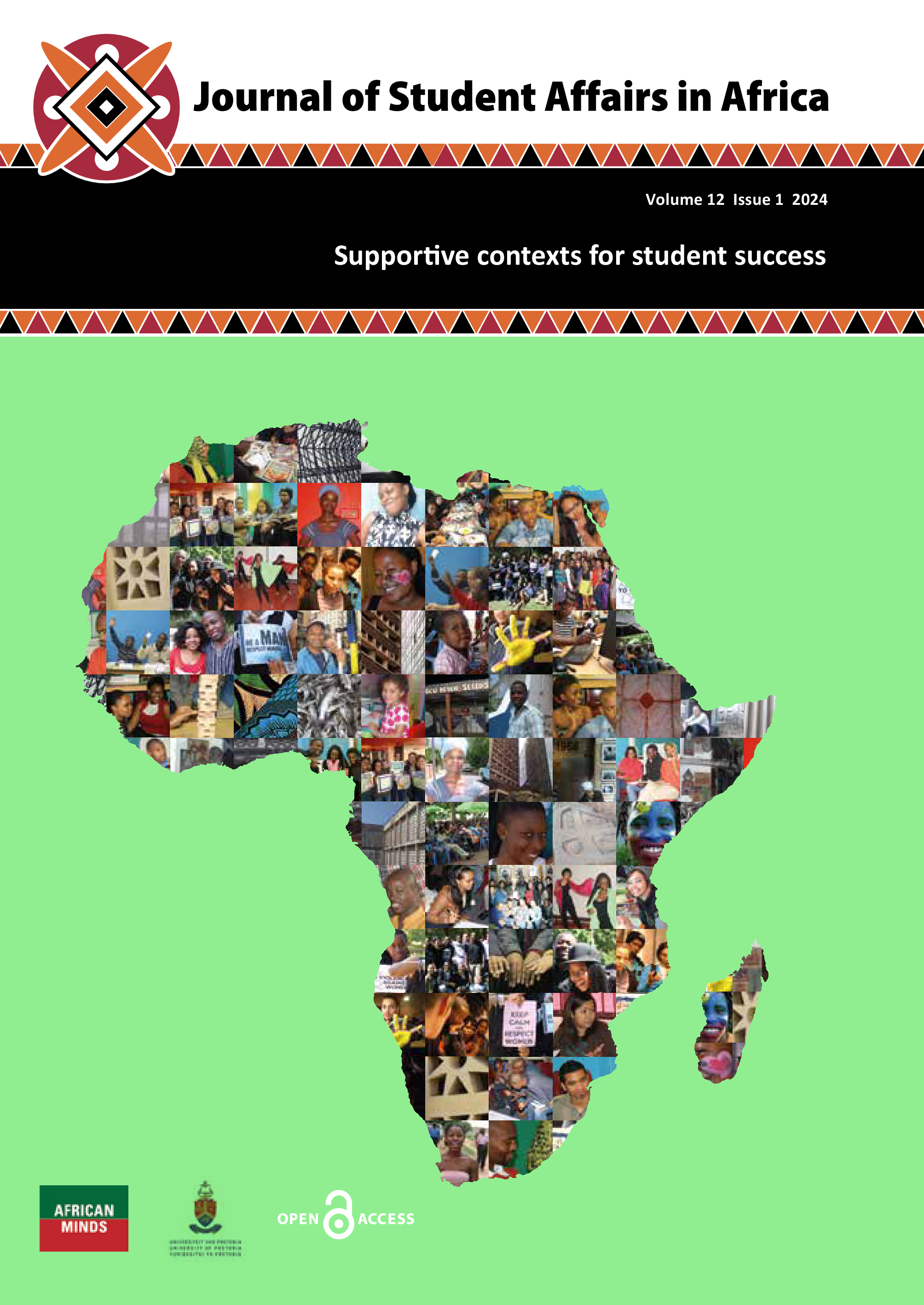Postgraduate psychology students’ mental health and coping during COVID-19: Lessons learnt
DOI:
https://doi.org/10.24085/jsaa.v12i1.4338Abstract
The transition in learning trajectories, academic pressures and stressors associated with financial and societal pressure that South African postgraduate university students experience places them at risk of mental health difficulties. For these students, their mental well-being has been further threatened due to the COVID-19 pandemic and the subsequent switch to emergency remote teaching. This study aimed to explore the physical and psychological health, resilience and coping amongst two Psychology honours student cohorts at a South African university. Using a repeated cross-sectional design, a sample of 38 Psychology honours students enrolled in 2020 and 39 Psychology honours students enrolled in 2021 voluntarily participated in the study. Overall, students reported poor mental health, with elevated levels of anxiety and burnout and moderate post-traumatic stress symptoms. The 2021 cohort reported significantly lower levels of self-efficacy, increased post-traumatic stress symptoms and employed coping through self-blame more frequently. Students’ feelings of isolation persisted as well as feelings of hopelessness with regard to the contextual challenges faced by the country and the pandemic. Over the course of the pandemic, students found that they had less anxiety about online learning, however, they noted that the mental health support provided by the university was not sufficient. These results highlight the important role university mental health services play in fostering student mental well-being and thus the need to prioritise making mental health services to students more accessible and efficient.
Downloads
Published
Issue
Section
License
Copyright (c) 2024 Tasneem Hassem, Victor de Andrade, Sumaya Laher, Nabeelah Bemath, katherine Bain

This work is licensed under a Creative Commons Attribution-NonCommercial-ShareAlike 4.0 International License.
Authors who publish with this journal agree to the following terms:
Authors retain copyright and grant the journal right of first publication with the work simultaneously licensed under the Creative Commons Attribution Share-alike 4.0 International License that allows others to share the work with an acknowledgement of the work's authorship and initial publication in this journal.
Authors are able to enter into separate, additional contractual arrangements for the non-exclusive distribution of the journal's published version of the work (e.g., post it to an institutional repository or publish it in a book), with an acknowledgement of its initial publication in this journal.
Authors are permitted and encouraged to post their work online (e.g., in institutional repositories or on their website) prior to and during the submission process, as it can lead to productive exchanges, as well as earlier and greater citation of published work (See: The Effect of Open Access).


